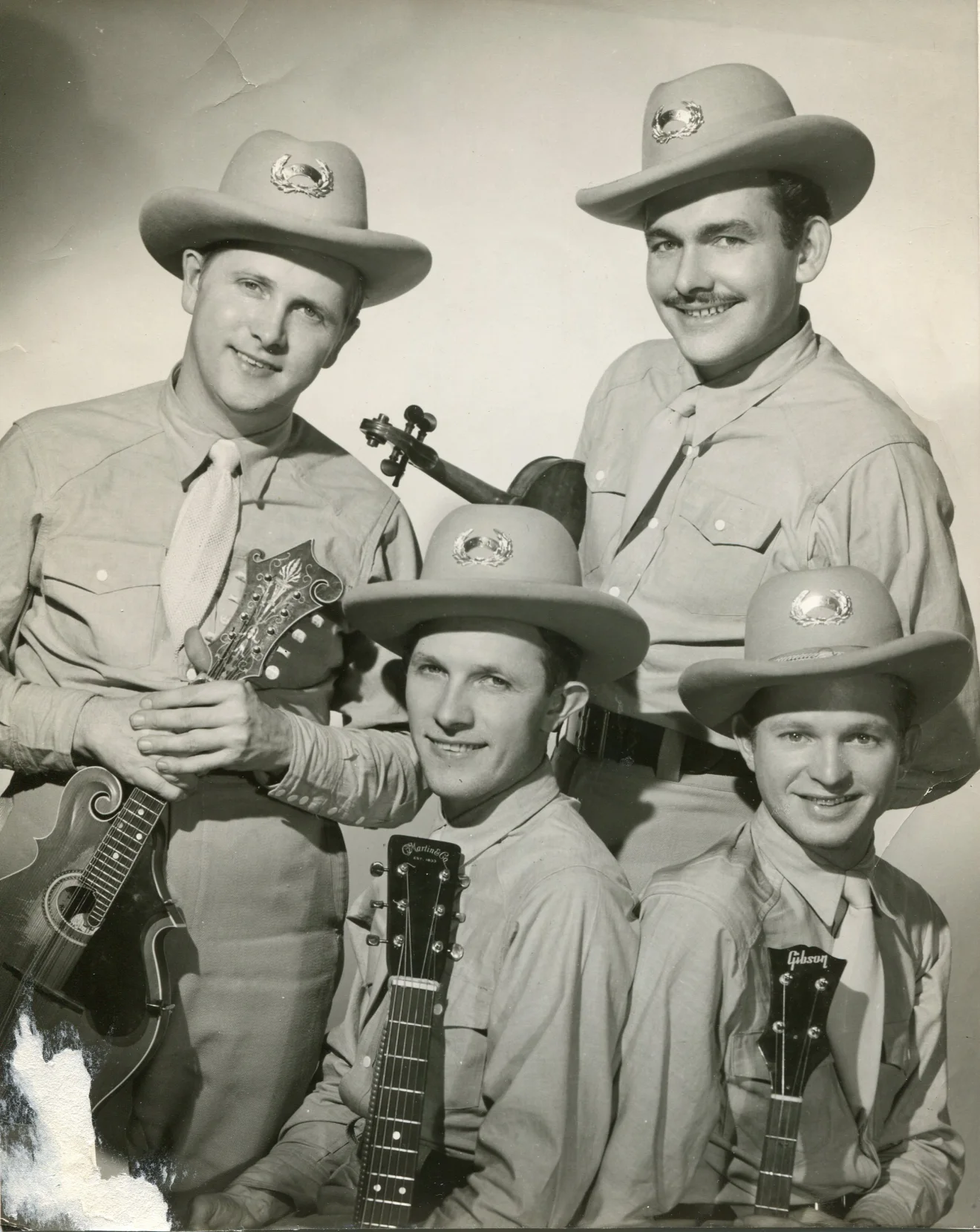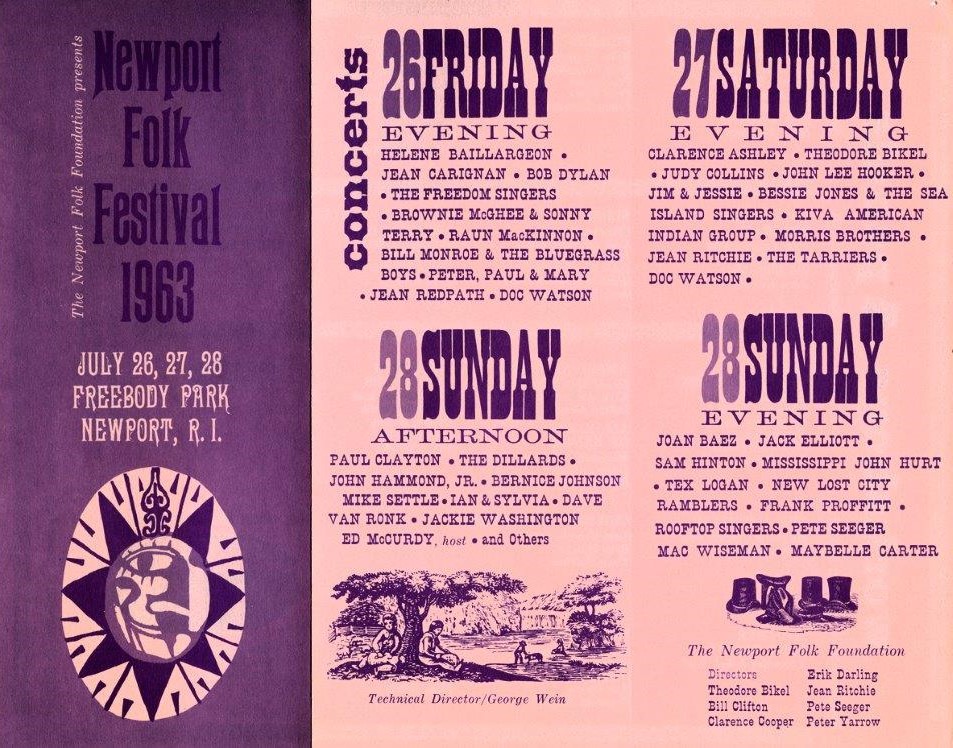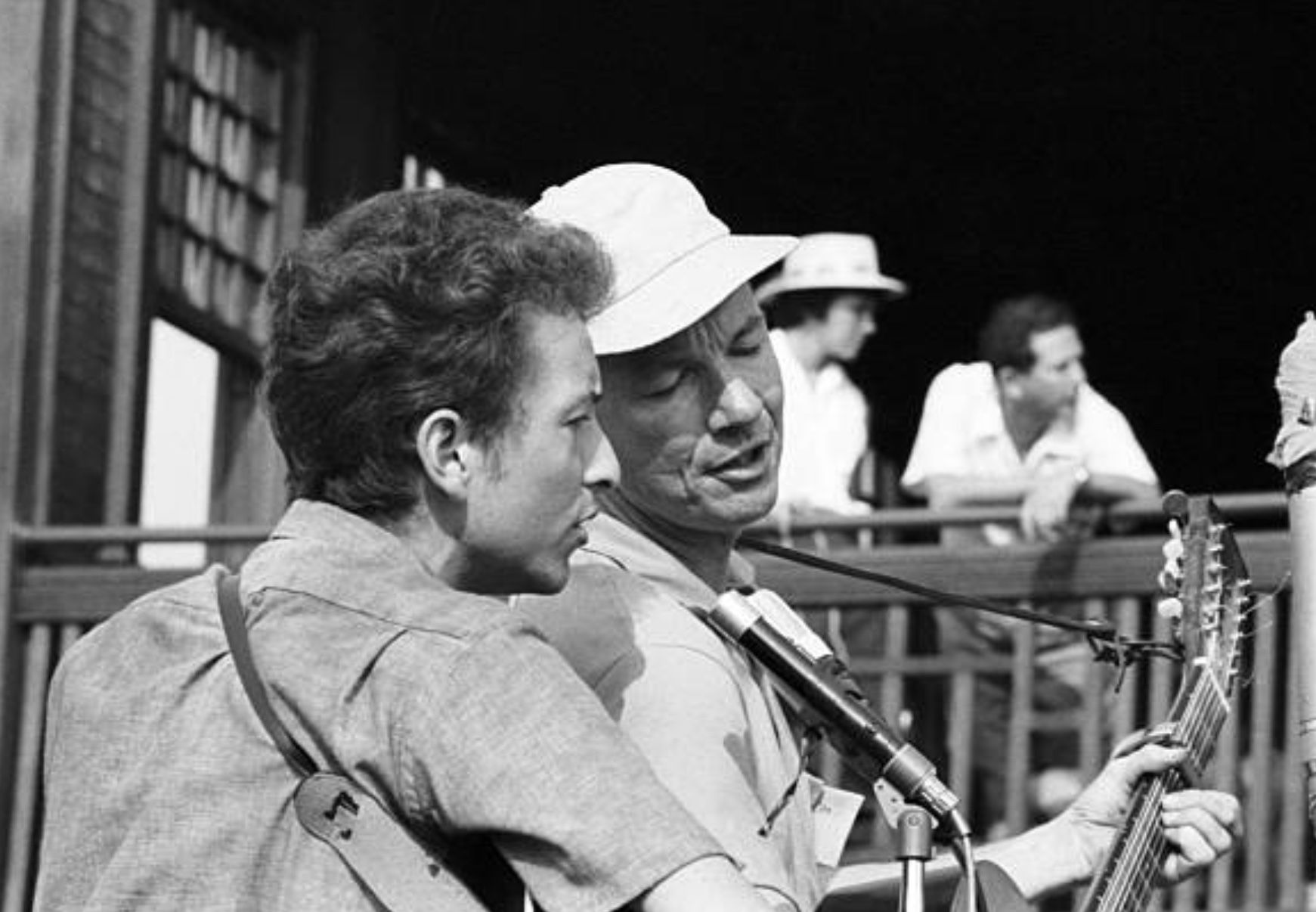Het is al bijna zes weken geleden dat ik een deeltje in deze serie over Bill Clifton plaatste, hoog tijd dus voor een nieuw deeltje! Er waren een paar andere onderwerpen voor deze die ook de nodige aandacht vroegen. Zo gaat dat af en toe… In het vorige deeltje sprak Bill Clifton over het Newport Folk Festival van 1963. Hij maakte toen deel uit van ‘The board of directors’ en had op die manier invloed op de programmering en voortgang van het festival. Een interessant onderwerp waar het nodige over te vertellen valt. We laten Bill gewoon verder aan het woord…
Line-up of the Newport Folk Festival
Transcription:
A great fiddle player who wrote ‘Christmas times a-coming’ and worked with Bill and he worked for Bell Telephone for as an engineer. Who am I talking about here?
I’m trying to come up with a name but… Oh, a wonderful fiddler. He lives in New Jersey, or he used to live in New Jersey, worked with Wilma Lee & Stoney Cooper. Even when Stoney died he went and worked with Wilma Lee for a while. Oh gosh. I hate it when names don’t come back like they should [Tex Logan], the name may come to me in a minute. Anyhow, those were the main people I had for the bluegrass portion. I did have Maybelle there and I also had Dorsey Dixon and I had, who else did I have? That’s all that I can think of right now but it was a real eye opener for a lot of people there. Because we had a huge audience, much bigger than we had expected, about 10,000 people per day, for three days, or was it four days, three or four days?

And the audience, when you’d bring people on and introduced them with any kind of an introduction which would lead them to understand who this person is. Like ‘This is The Morris Brothers from western North Carolina and if you’ve heard ‘Salty Dog Blues’, or if you know ‘Tragic Romance’ or whatever, ‘Somebody Loves You Darling’. All the people would sit up. Yeah, I know these songs, here’s where they come from and here they are.’ And Zeke Morris I’ve mentioned, you know, his band was the first to give so many bluegrass people their first jobs. And at that moment I didn’t mention all that but I could have mentioned all those things and those people were fairly new to it and they didn’t know much about bluegrass. But they knew some of the songs and when you mentioned ‘Salty Dog Blues’, yeah, of course they knew that one. So you’d bring them on with that and then with all the others it was a matter of, other than Bill Monroe, it was a matter of, you know: ‘who are these people? Jim & Jesse, I don’t know who they are. I’ve heard of The Stanley Brothers, I’ve heard of Flatt & Scruggs but who are these people?’ Well, it was time they found out, in 1963, they should know by then but, you know, they didn’t. And so it’s time to introduced them to Mac Wiseman and the people like that. And the New Lost City Ramblers were there, but that had nothing to do with me. I mean they were there…

That was an eye-opener as well, wasn’t it? Yeah, yeah. And I can’t remember who else was there.
Was Pete Seeger on himself? Pete did, we all got together at the end of the day and did something on the stage, well, we did ‘This Land Is Your Land’ to finish up with. And all of us sang a verse of that I think. I mean, we sang it around so, I don’t remember which verse I did but that doesn’t matter but we all just kept singing it. So it went from one to three, from one to three as we went along.

And sang it about fifteen times… Yeah, and I think Pete might have done something else. I don’t remember it, he might have, yeah. He could well have, I just don’t remember now. But I didn’t and not everybody did but Peter, Paul & Mary were on.
That’s why I was wondering. Yeah Pete might have done a set too, he probably did. I just don’t remember. Charlottesville and he came down and drove down and asked me if I would be a part owner of Winwood Music. That he was starting this publishing company called Winwood Music and would I be a part owner, even if it was 5 or 10% or something? I wouldn’t have to put up any money, part owner and not putting up any money? No, not put up any money but I’d like to have your name on it, you know. And I said: ‘Well, yeah, I guess 10% this wouldn’t be bad’. I sold him back my 10%, which I hadn’t paid anything for; I sold it back to him right before he got the big royalty check from The Rolling Stones for one song. But anyhow, they still have one other owner. Dick Spottswood is part owner; he has 10%. I think he is the only other one and he’s never taken any money out, I don’t think. I don’t know if he has but he has just moved to Florida. So maybe he took some money out before he went to Florida. But anyhow, where are we Kees, what have you…?

Mainst opvallende inderdoad het programma van 1963. What a crowd, what a night!! En den te bedenken dat een joar loater was Johnny Cash erbie!
Ook zonder Johnny Cash was het (wat mij betreft) al indrukwekkend! Als iedereen ’t volgende jaar teruggekomen is + Johnny Cash…. Ik vraag me af of we dat aan hadden gekund Bert…